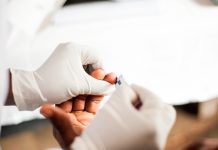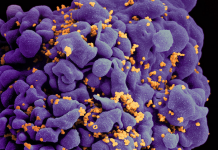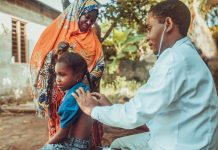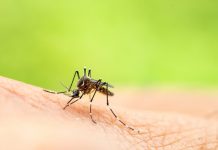Dr Avinash Hari Narayanan (MBChB), Clinical Lead at London Medical Laboratory, explains that we need stronger efforts worldwide to end HIV transmission and improve the lives of those living with the disease
Can the HIV pandemic ever be ended, and can the UK’s healthcare providers and planners ever be confident they are winning the battle until HIV is defeated globally? I explain why Britain’s HIV eradication measures cannot succeed until the virus is controlled worldwide and why the global health agenda is key to shaping narratives locally.
On March 11, 2020, the World Health Organization (WHO) officially declared COVID-19 a ‘pandemic’ – i.e., a widespread epidemic crossing national boundaries. A little over three years later, on May 5, 2023, it announced that the COVID-19 pandemic was no longer a global health emergency. This de-escalation signified the success of global health measures for vaccination, use of personal protective equipment (PPE) and movement restrictions.
In contrast to this seemingly cut-and-dried beginning and end, the HIV/AIDS pandemic has lasted over 40 years, killing millions worldwide. Yet HIV is seldom even called, yet alone treated comparably to, a ‘pandemic’ today. Why is that? Could it be down to geography, economics or even prejudice?
A global history of HIV
The first reported deaths from illnesses related to Acquired Immune Deficiency Syndrome (AIDS) were reported in New York in June 1981. It was later discovered that a virus now termed human immunodeficiency virus type 1 (HIV-1) was the cause. It would become one of the most devastating infectious diseases in modern times.
Today, 42 years later, over 40.1 million people have died worldwide, while 38.4 million currently have HIV. Living with HIV, as individuals and as a society, remains challenging within the UK. Still, ease of access to testing, robust treatments and a forward-thinking social and public health strategy have significantly improved outcomes for people with HIV.
Unfortunately, the same cannot be said for many worldwide who are subject to poverty, deprivation, exploitation, prejudice, and discrimination. 650,000 people still died from HIV/AIDS-related illnesses in 2021; recognising this startling figure is essential.
Even though annual HIV/AIDS-related deaths are likely to far outstrip COVID-related deaths this year, the WHO refers to HIV as an epidemic rather than a pandemic. Could Western nations no longer consider HIV a pandemic, despite its global death toll across many nations, because it no longer kills many people in wealthy countries?
Of those 650,000 annual deaths, the vast majority happen outside the West. Africa remains severely affected, with nearly one in every 25 adults (3.4%) living with HIV and accounting for more than two-thirds of those with HIV worldwide.
In 2014, the United Nations committed to a target of eradicating what it pointedly called ‘The AIDS epidemic’ by 2030. Looking at treatments and new infection levels from the standpoint of the UK, that goal is possible. Globally, however, nearly three-quarters of a million people die every year from the virus, either because they do not know they have contracted it and are not on treatment or start treatment late.
The economic burden of HIV and the lack of disease control measures
Most of these people live in countries either too poor to support such programmes fully or where there is so much prejudice and fear surrounding the virus that they are reluctant to have themselves checked, let alone engage with disease control measures.
It may be that health-related issues are eclipsed by more immediate priorities, such as food, clean water, and safety. This problem is highlighted by considering pre- exposure prophylaxis (PrEP), an intervention positively adopted in the West. PrEP is a powerful tool to prevent new cases of HIV successfully. Still, the socioeconomic costs to the individual and country may not be feasible at scale in the African continent.
An estimated 1.5 million people were newly infected with HIV in 2021. While the world has committed to ending AIDS by 2030, new infections and death rates are not falling rapidly enough to meet this target.
A 2018 paper published in the journal ‘Emerging Infection Diseases’, specifies the targets needed to be achieved to eradicate HIV as a pandemic. The paper, entitled ‘Ending the HIV/AIDS Pandemic’ (and a key point here is the use of the term ‘pandemic’), was coincidentally co-authored by Dr Anthony Fauci – an expert in the study of HIV and a key international health leader during the COVID-19 pandemic. Dr Fauci has become well known for not shying away from controversy and notably does not ‘downgrade’ HIV/AIDS to the status of an epidemic.
Fauci notes: ‘The phrase “HIV/AIDS pandemic” indicates a global HIV epidemic, which may be generalised in some countries, such as South Africa, and localised in other countries, such as the United States.’
He believes ending the pandemic can be achieved when the following targets have been met. For example, the number of new HIV infections would be fewer than the number of AIDS-related deaths; HIV infection and AIDS incidence would decrease to fewer than one AIDS case per thousand population; 73% of persons living with HIV and AIDS would be receiving treatment; 86% would experience virus suppression; and mother-to-child transmission would be eliminated to less than 5%.
How near are we to these global targets?
Some have been met, but only 68% of people living with HIV are virally suppressed. In addition, just 81% of pregnant women living with HIV have access to antiretroviral medicines to prevent transmission of HIV to their children, which is still significantly short of the numbers needed to reduce mother-to-child transmission to less than 5%.
The UK has played a vital role in shaping the agenda and working towards eliminating HIV as a global health problem. However, for the pandemic to be over by 2030, the UK needs to look beyond HIV as a local public health concern and continue its role in global health stewardship and leadership mirroring contributions during the COVID-19 pandemic.
This may be an unpopular view in current socially insular times. Still, the UK must continue investing in research, prevention, and treatment programmes at home and abroad and lead the agenda through strong commitment, innovative strategies, and influential partnerships.
Locally we have supported marginalised populations and promoted inclusivity in HIV prevention, treatment, and support. However, this must translate globally by addressing the social, structural, and economic determinants of HIV. The key to defeating HIV is to create an equitable global response to this pandemic.
Contributor Details
Editor's Recommended Articles
-
Must Read >> Why have HIV outcomes improved with urban gardening?











